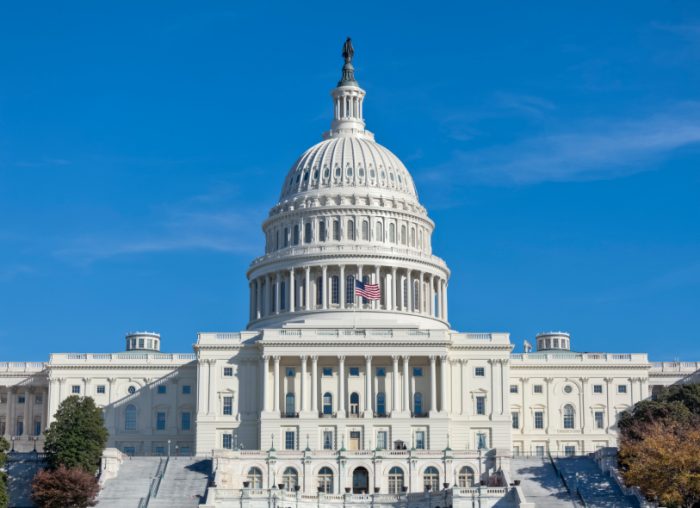Jason Snyder
Shapiro Administration Highlights “One-Stop-Shop” Services For SUD Treatment, Recovery In Luzerne County: RCPA Member Children’s Services Center Referenced
RCPA Urges Provider Members to Submit Recommendations for BH Council, Advisory Committee
Gov. Shapiro Signs Executive Order Creating Behavioral Health Council
On Tuesday, Governor Josh Shapiro signed an executive order to create a Behavioral Health Council. The council aims to bring together state leaders, local governments, and community providers to develop a statewide action plan to address any gaps in access, affordability, or delivery of services, with the goal of removing silos across state agencies, health care providers, payers, state and local government sectors, and decreasing the wait time for services for Pennsylvanians in need.
Charged with setting the agenda for behavioral health under the Shapiro Administration, the council will be comprised of 33 members and include a diverse array of stakeholders with representation from state, county, and local governments, the provider community, advocacy groups, and individuals with lived experiences. A list of Council members is available online.
The executive order also creates an advisory committee that will share with the council industry knowledge, expertise, reports, findings, and feedback from the communities they serve to assist members in their work to improve the delivery of services. Read the complete press release.
National Council for Mental Wellbeing Announces Hill Day on October 18
The National Council for Mental Wellbeing is calling for support to address the ongoing mental health and substance use crises. They are organizing a virtual advocacy event called Hill Day on October 18 from 1:00 pm – 4:00 pm EST, where participants can urge elected officials to focus on key issues such as the behavioral health workforce shortage, establishing Certified Community Behavioral Health Clinics (CCBHC) into federal law, expanding access to substance use care, and investing in crisis care infrastructure. Register for the event today!
Save the Date: DDAP to Host 2023 Emerging Drug Trend Symposium

The Pennsylvania Department of Drug and Alcohol Programs (DDAP) will host the 2023 Emerging Drug Trend Symposium from 8:30 am – 4:30 pm on Thursday, November 9, at the Penn Harris Hotel in Camp Hill, PA. The symposium will provide attendees with valuable insights into three key areas: the latest trends in drug use within Pennsylvania, shifts in overdose patterns with a particular focus on increasing rates of overdose deaths in communities of color, and the exploration of best practices and innovative strategies to effectively respond to these emerging drug trends. Registration details and an agenda will be available soon.
Governor Shapiro Announces Juvenile Justice Week Proclamation
The Juvenile Justice Week proclamation, signed by Governor Shapiro, designates October 1–7, 2023, as Juvenile Justice Week, calling on Pennsylvanians, government agencies, institutions, and schools to raise awareness and understanding of juvenile justice. The proclamation highlights the mission and principles of Pennsylvania’s juvenile justice system. It emphasizes the importance of providing balanced attention to community protection, offender accountability, and the rehabilitation of juveniles within the system. The proclamation also underscores the principles of restorative justice, with a focus on repairing harm to crime victims and communities and ensuring that all parties involved, including victims and offenders, receive tangible benefits from their interactions with the juvenile justice system. Lastly, it emphasizes fair and unbiased treatment in all aspects within the system.
DDAP Releases Results From Workforce Climate Survey
The Pennsylvania Department of Drug and Alcohol Programs (DDAP) recently conducted a comprehensive survey and listening session to assess the state’s substance use disorder (SUD) workforce. The Workforce Climate Survey results reveal a substantial workforce shortage, with 84% of the nearly 500 respondents citing it as a significant problem. The vacancy rate for SUD positions averaged 18%, with notable variations based on organization size and location. Larger, well-established non-profit organizations in metropolitan areas reported higher vacancy rates, and critical positions, such as counselors, nurses, entry-level professionals, and peer specialists, were particularly challenging to fill. Recruitment and retention issues were attributed to limited applicant pools and difficulties in offering competitive compensation.
The survey participants offered recommendations for both short and long-term solutions. These recommendations included increasing reimbursement rates, reducing education and experience requirements, alleviating paperwork burdens, and expanding student loan forgiveness and tuition reimbursement programs. In response to these findings, DDAP plans to use the survey data to inform its state plan, regulatory reform, and the allocation of opioid settlement funding. The department’s future efforts will focus on increasing the supply of addiction professionals, leveraging technology, addressing workforce distribution across the state, and enhancing workforce resilience to support Pennsylvania’s SUD workforce better and mitigate the ongoing overdose crisis.
DDAP Seeks Public Input on PA SUPTRS Block Grant Submission

The Pennsylvania Department of Drug and Alcohol Programs (DDAP) is inviting public comments on the Pennsylvania Substance Use Prevention, Treatment, and Recovery Services (SUPTRS) Block Grant submission. The submission process consists of three parts: the draft of the Substance Use Prevention Treatment and Recovery Services Assessment and Plan, or Mini-Application, which is currently open for review; the Substance Abuse Prevention and Treatment Block Grant Report, which is to be posted in November; and the Annual Synar Report, which is to be available in December. These documents can be accessed here using “citizenpa” as the login and “citizen” as the password. Public comments are requested to be submitted electronically by September 30.
DDAP Secretary Addresses International Overdose Awareness Day in Memorial Event
International Overdose Awareness Day (IOAD) aims to end overdose deaths globally, fostering stigma-free remembrance and recognizing the pain experienced by families and friends. This campaign raises awareness about the grave public health crisis posed by overdoses, igniting discussions and actions based on evidence-backed strategies for prevention.
Pennsylvania Department of Drug and Alcohol Programs Secretary Dr. Latika Davis-Jones participated in a poignant memorial event at the state capitol this morning, Thursday, August 31. She highlighted the transformation of the Capitol steps into a temporary memorial, signifying the enduring memories of loved ones. Dr. Davis-Jones emphasized embracing emotions authentically on this day. Her call to action urges collective responsibility to honor lives lost, emphasizing overdose preventability and the hope of recovery from addiction. Additionally, she shared resources aligned with IOAD’s theme and addressed equity-related dimensions of the overdose crisis, including how racial and ethnic minority groups are disproportionately affected. Resources provided by DDAP include:
General Resources:
- Get Help Now Hotline
- Get Naloxone
- Find Substance Use Disorder Treatment
- Just Five — Substance Use Disorder Education and Prevention
IOAD Resources:
- PAStop — International Overdose Awareness Day Resources
- DEA — International Overdose Awareness Day
- CDC — Stop Overdose Website
Equity-Related Resources:















